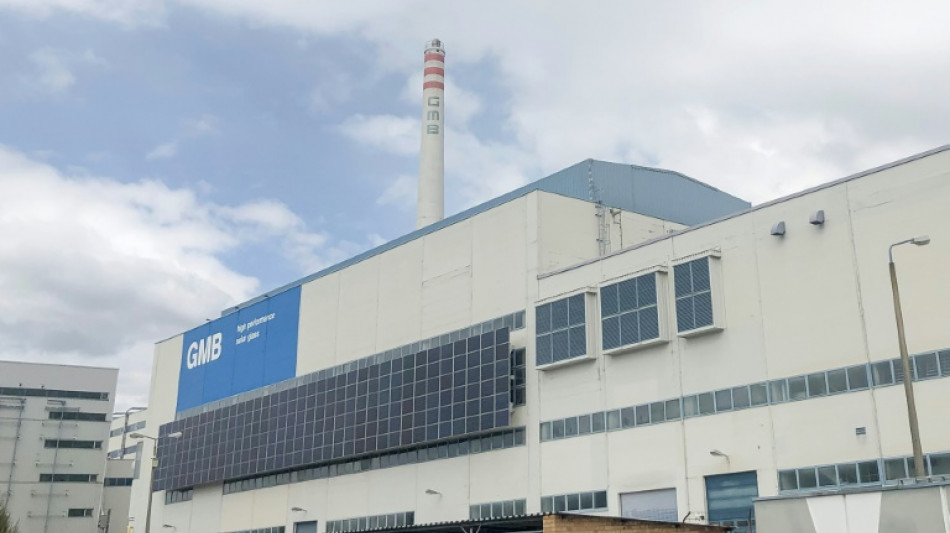
-
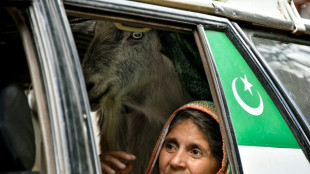 Pakistan's Kashmiris return to homes, but keep bunkers stocked
Pakistan's Kashmiris return to homes, but keep bunkers stocked
-
Postecoglou hopeful over Kulusevski injury ahead of Spurs' Europa final

-
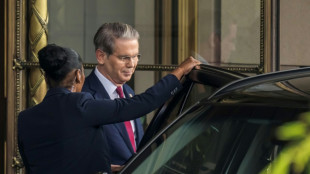 Washington hails 'substantive progress' after trade talks with China
Washington hails 'substantive progress' after trade talks with China
-
Barca edge Real Madrid in thriller to move to brink of Liga title

-
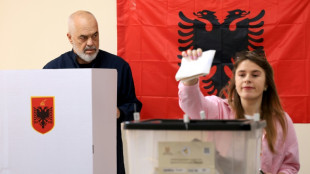 Albanians vote in election seen as key test of EU path
Albanians vote in election seen as key test of EU path
-
Forest owner Marinakis confronts Nuno after draw deals Champions League blow

-
 Dortmund thump Leverkusen to spoil Alonso's home farewell
Dortmund thump Leverkusen to spoil Alonso's home farewell
-
Pedersen sprints back into Giro pink after mountain goat incident

-
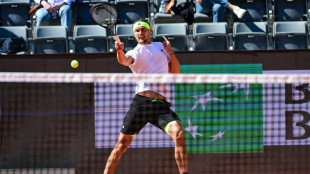 Zverev cruises into Rome last 16, Sabalenka battles past Kenin
Zverev cruises into Rome last 16, Sabalenka battles past Kenin
-
Newcastle win top-five showdown with Chelsea, Forest held to damaging draw

-
 Iran says nuclear talks 'difficult but useful', US 'encouraged'
Iran says nuclear talks 'difficult but useful', US 'encouraged'
-
Zarco first home winner of French MotoGP since 1954
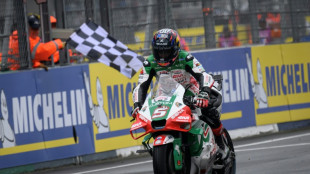
-
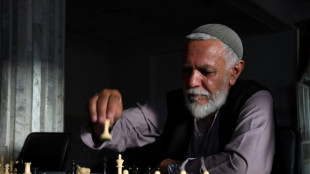 Taliban govt suspends chess in Afghanistan over gambling
Taliban govt suspends chess in Afghanistan over gambling
-
Eduan, Simbine shine at world relays
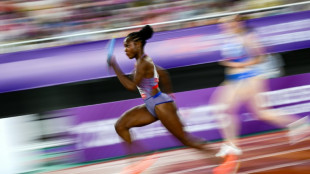
-
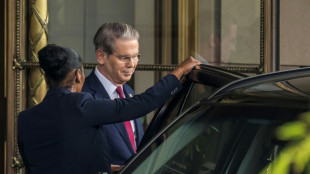 Washington 'optimistic' amid trade talks with China
Washington 'optimistic' amid trade talks with China
-
Tonali sinks 10-man Chelsea as Newcastle win top five showdown

-
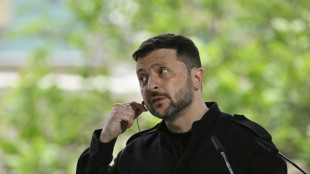 Ukraine says will meet Russia for talks if it agrees to ceasefire
Ukraine says will meet Russia for talks if it agrees to ceasefire
-
India's worst-hit border town sees people return after ceasefire
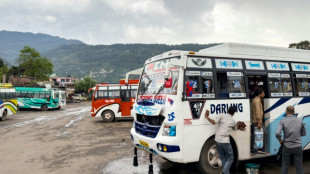
-
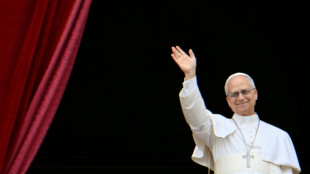 Pope Leo XIV warns of spectre of global war in first Sunday address
Pope Leo XIV warns of spectre of global war in first Sunday address
-
Ukraine says will meet Russia for talks if Moscow agrees to ceasefire
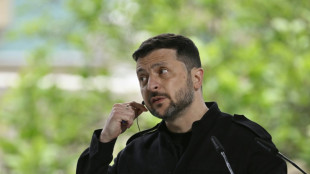
-
 Sabalenka battles past Kenin and into Rome last 16
Sabalenka battles past Kenin and into Rome last 16
-
Erdogan says efforts to end Ukraine war at 'turning point'
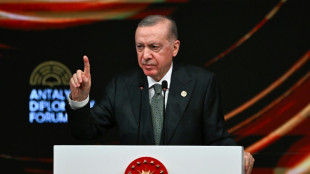
-
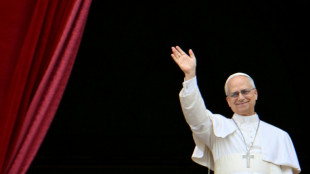 Pope Leo XIV calls for peace at St Peter's prayer
Pope Leo XIV calls for peace at St Peter's prayer
-
Ukraine will meet Russia for talks if Moscow agrees to ceasefire
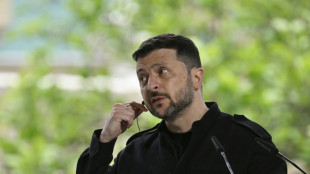
-
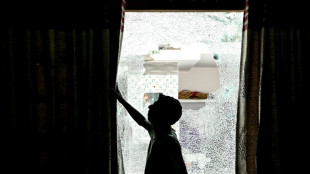 India, Pakistan ceasefire holds after early violations
India, Pakistan ceasefire holds after early violations
-
Herbert seals Asian Tour win with final-hole heroics

-
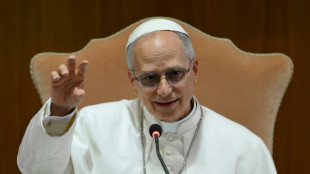 Catholics gather to catch glimpse of Pope Leo XIV at St Peter's prayer
Catholics gather to catch glimpse of Pope Leo XIV at St Peter's prayer
-
US-China talks resume as Trump hails 'total reset' in trade relations
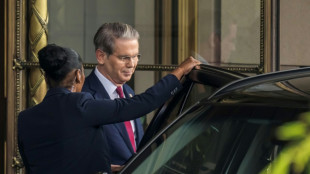
-
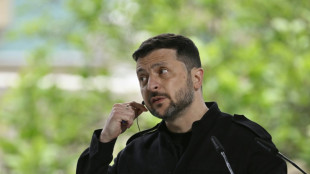 Ukraine ready for Russia truce talks, Zelensky says
Ukraine ready for Russia truce talks, Zelensky says
-
Jubilant Peruvians celebrate new pope at mass in adoptive city
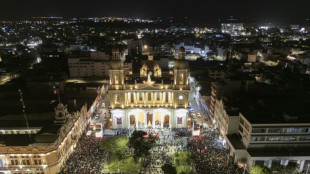
-
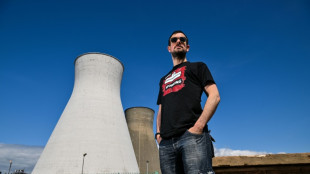 Scottish refinery closure spells trouble for green transition
Scottish refinery closure spells trouble for green transition
-
Convicted ex-Panama president Martinelli granted asylum in Colombia
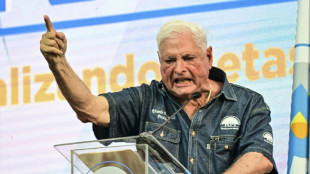
-
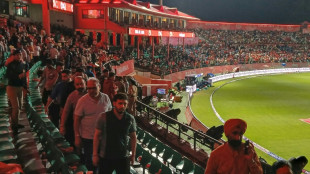 IPL chiefs in talks about restart following ceasefire: reports
IPL chiefs in talks about restart following ceasefire: reports
-
Navarrete beats Suarez on technical decision to keep title

-
 Scans clear Wallabies fly-half Lolesio of serious back injury
Scans clear Wallabies fly-half Lolesio of serious back injury
-
Leo XIV to address faithful with St Peter's prayer
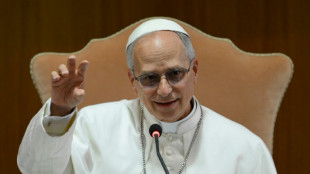
-
 T-Wolves grab 2-1 NBA playoff series lead as Celtics get key win
T-Wolves grab 2-1 NBA playoff series lead as Celtics get key win
-
Gaza war casts shadow over Cannes film festival
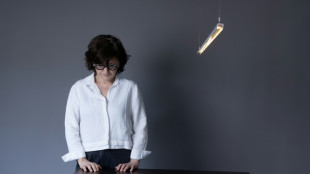
-
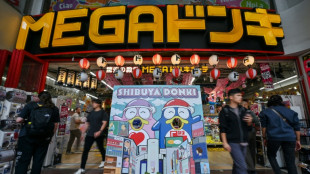 'Treasure hunt': tourists boost sales at Japan's Don Quijote stores
'Treasure hunt': tourists boost sales at Japan's Don Quijote stores
-
Cannes Festival: the films in competition
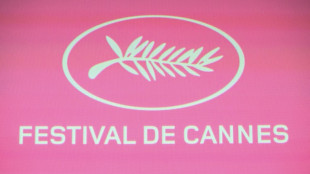
-
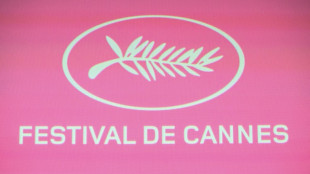 Cannes film festival: what to look out for
Cannes film festival: what to look out for
-
Jordan hospital treats war casualties from across Middle East
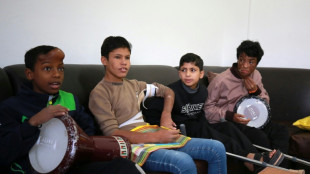
-
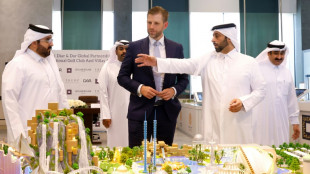 As Trump family's Gulf empire grows, rulers seek influence, arms, tech
As Trump family's Gulf empire grows, rulers seek influence, arms, tech
-
S. Korea conservatives choose presidential candidate after last-minute chaos
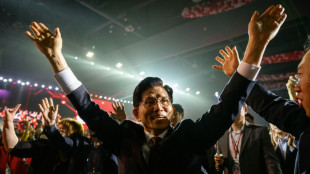
-
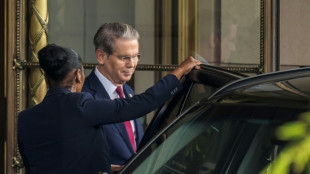 Trump hails 'total reset' in US-China trade relations as talks continue
Trump hails 'total reset' in US-China trade relations as talks continue
-
Film claims to name killer of slain journalist Shireen Abu Akleh

-
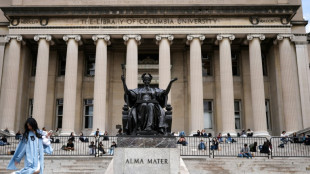 Under Trump pressure, Columbia University ends semester in turmoil
Under Trump pressure, Columbia University ends semester in turmoil
-
Putin proposes direct Ukraine talks but quiet on 30-day ceasefire
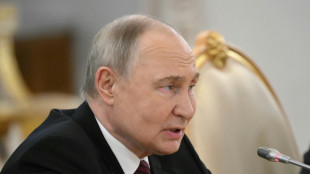
-
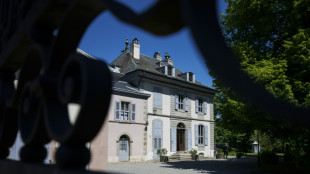 Trump hails US-China trade 'reset' after first day of talks
Trump hails US-China trade 'reset' after first day of talks
-
Jeeno leads Boutier by one at LPGA Americas Open


Russian gas stop clouds outlook for solar panel supplier
In a glassworks in Tschernitz, a stone's throw from the border with Poland, the roar of the furnaces cannot drown out worried whispers about Russian gas supplies to Germany being cut off.
In a vast factory with a white chimney, automated machines are making hundreds of small glass rectangles under the surveillance of factory employees.
The glossy tiles made here are used in solar panels. "We supply the biggest producers in Europe," said Torsten Schroeter, boss of GMB Glasmanufaktur Brandenburg.
The ovens in the factory glow red and kick out a huge amount of heat as they churn out up to 10 million square metres of the tiles every year.
But to make these essential components for a flagship green technology, the industry paradoxically has a significant demand for gas.
- Embargo -
Cheap gas was widely available until recently, allowing the plant to compete with rivals in China, the uncontested global leader in the sector.
Recent price rises for the fuel -- a result of the war in Ukraine -- and the threat of a stop in deliveries from Russia -- a major supplier for Germany and many other European countries -- has stoked fears in the industry.
"An end to Russian gas supplies would mean a complete stop to production for us," Schroeter told AFP.
The risk of a sudden stop is the cause for much handwringing, not just in Tschernitz, but among many German industries that depend on it to fuel their businesses.
Before the beginning of the war, 55 percent of the gas supplies to Europe's largest economy came via pipelines from Moscow.
"The last decades, marked by the deregulation of the energy market, has led us to choose the cheapest gas -- provided by the Russian pipelines," former vice-chancellor Sigmar Gabriel acknowledged in February.
But Russia's invasion of Ukraine has dramatically exposed Germany's energy Achilles' heel.
Berlin has since been scrambling to pivot away from Russian reliance. But Germany lacks the crucial infrastructure needed to import large amounts of gas from other suppliers, such as the United States or Qatar.
This uncomfortable situation is partly behind the government's refusal, so far, to back a European boycott of Russian gas.
The conflict in Ukraine has already caused energy prices to surge, rising by 39.5 percent in March, heaping pressure on industry.
In Tschernitz, almost 170 gigawatt/hours are used every year to heat the raw materials -- either quartz or dolomite -- to over 1,600 degrees Celsius (2,912 Fahrenheit) to make glass.
"A gas embargo would lead to production stops, job losses and, in some cases, significant damage to production sites," the powerful German industrial lobby BDI said in a recent statement.
Among the most vulnerable sectors were paper, steel and above all, chemicals, according to a study by the LBBW bank.
Chemicals giant BASF warned that it would have to stop production at its home factory of Ludwigshafen, where 30,000 people work, if Russian gas supplies were even halved.
"A full embargo on Russian energy would force Germany to ration gas supplies to its most gas-intensive companies", leading to a recession, said Andrew Kenningham, chief Europe economist at Capital Economics.
- 'Out of question' -
In the Tschernitz glassworks, a halt in gas deliveries would have severe consequences for the ovens.
Cooling would cause irreparable damage to the materials in the furnaces and would force the company to "rebuild everything", starting by ordering new pieces, a process which could take months if not years, according to Schroeter.
"There is no alternative" to Russian gas, he said.
Other fossil fuels, such as coal, are not well suited for the task. The company already uses a hybrid system to heat the ovens using electricity, but it only accounts for "10 percent" of its needs.
In time, hydrogen could replace natural gas, but the infrastructure and supplies in Germany are not currently sufficient.
Uncertainty is rife among the 300 or so employees in Tschernitz, who fear for the future of the plant and the glass industry, part of the local economy for centuries.
And the implications go far beyond that, warns Schroeter.
"Without us, the green transition in Germany is out of the question," he said.
F.Dubois--AMWN